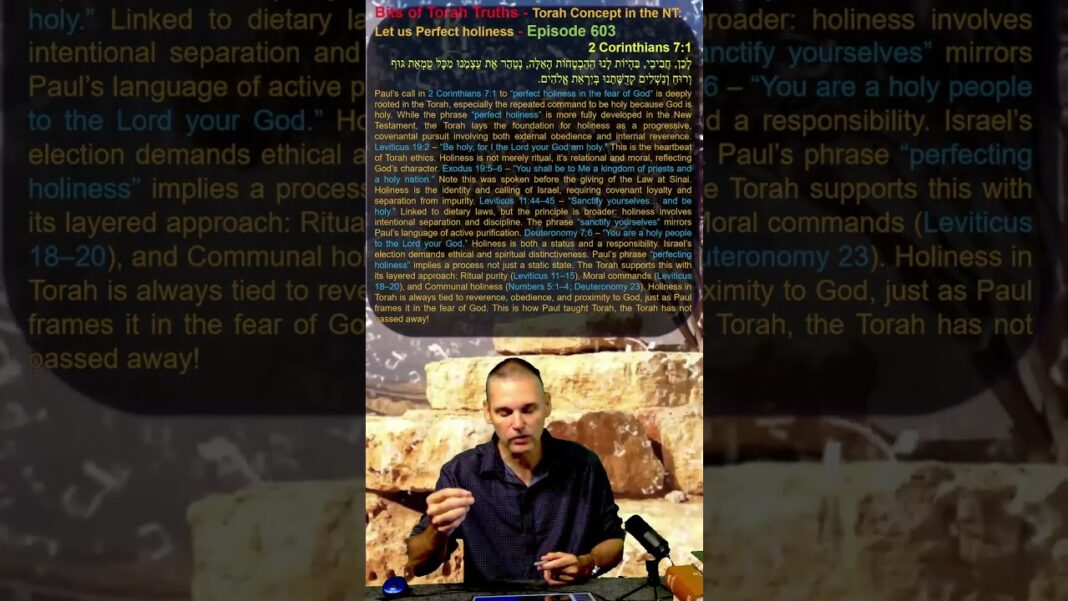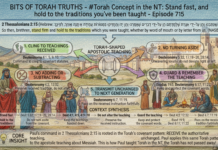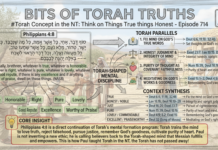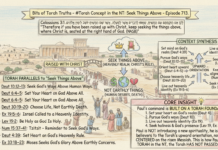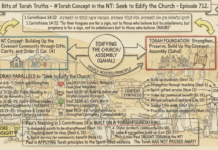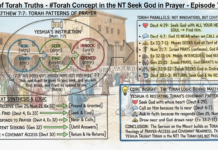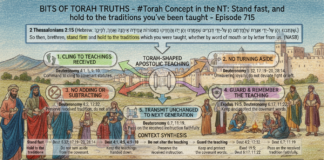Bits of Torah Truths – Torah Concept in the NT: Let us Perfect holiness – Episode 603
2 Corinthians 7:1
לָכֵן, חֲבִיבַי, בִּהְיוֹת לָנוּ הַהַבְטָחוֹת הָאֵלֶּה, נְטַהֵר אֶת עַצְמֵנוּ מִכָּל טֻמְאַת גּוּף וְרוּחַ וְנַשְׁלִים קְדֻשָּׁתֵנוּ בְּיִרְאַת אֱלֹהִים.
#torah #torahwisdom #torahtruth #torahforlife #torah4you #torahtruth
2 Corinthians 7:1
7:1 Therefore, having these promises, beloved, let us cleanse ourselves from all defilement of flesh and spirit, perfecting holiness in the fear of God. (NASB)
https://www.matsati.com/index.php/category/bits-of-torah-truths/
Paul’s call in 2 Corinthians 7:1 to “perfect holiness in the fear of God” is deeply rooted in the Torah, especially the repeated command to be holy because God is holy. While the phrase “perfect holiness” is more fully developed in the New Testament, the Torah lays the foundation for holiness as a progressive, covenantal pursuit involving both external obedience and internal reverence. Leviticus 19:2 – “Be holy, for I the Lord your God am holy.” This is the heartbeat of Torah ethics. Holiness is not merely ritual, it’s relational and moral, reflecting God’s character. Exodus 19:5–6 – “You shall be to Me a kingdom of priests and a holy nation.” Note this was spoken before the giving of the Law at Sinai. Holiness is the identity and calling of Israel, requiring covenant loyalty and separation from impurity. Leviticus 11:44–45 – “Sanctify yourselves… and be holy.” Linked to dietary laws, but the principle is broader: holiness involves intentional separation and discipline. The phrase “sanctify yourselves” mirrors Paul’s language of active purification. Deuteronomy 7:6 – “You are a holy people to the Lord your God.” Holiness is both a status and a responsibility. Israel’s election demands ethical and spiritual distinctiveness. Paul’s phrase “perfecting holiness” implies a process not just a static state. The Torah supports this with its layered approach: Ritual purity (Leviticus 11–15), Moral commands (Leviticus 18–20), and Communal holiness (Numbers 5:1–4; Deuteronomy 23). Holiness in Torah is always tied to reverence, obedience, and proximity to God, just as Paul frames it in the fear of God. This is how Paul taught Torah, the Torah has not passed away!
